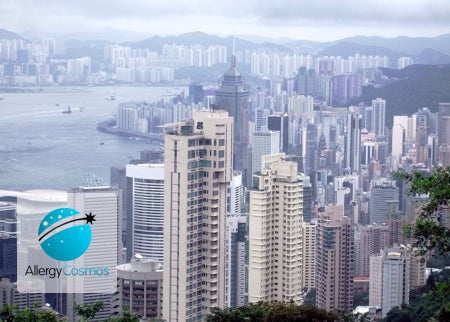Hong Kong is the richest city in China so it should be able to afford to put decent air pollution measures in place. Unfortunately, it appears that Hong Kong's air quality threatens the health of its citizens and, if nothing is done quickly, the pollution problem will put people off thinking of relocating there – either for business or on vacation. In the long run, this will hurt the Hong Kong economy, as well as the population's health. The signs are already there, office space provider Regus carried out a survey of companies and learned that three quarters of them find that air quality is a factor making it hard to attract good employees from overseas.
Here's what has been happening with the Hong Kong air pollution:
- A review of air quality in Hong Kong showed that the city's nitrogen dioxide levels are the second worst in China.
- Roadside air pollution exceeded targets 20% of the time in 2011 (compared to just 2% in 2005) – so things are getting worse.
- The Hedley Environment Index, which monitors air pollution in Hong Kong suggests that poor air quality has been responsible for over 7,000 premature deaths, over half a million avoidable hospital days and nearly 50 million doctor visits during the present Hong Kong administration (2005-2012). To make things worse, Prof. Hedley apparently changed his mind about these figures and thinks the true number of premature deaths from air pollution is nearer to 3,200 a year.
Government response to these concerns has been tardy, to say the least. They appear to be dithering over issuing new air quality objectives. Why? One view is that the objectives might turn out to be incompatible with some ambitious new building projects planned for the future. This is borne out by the fact that the Hong Kong Airport Authority has said that its proposed third runway would result in nitrogen dioxide emissions (from aircraft, for it is not just motor vehicles that emit this pollutant) exceeding air quality limits. The challenge for Hong Kong is the same as that facing any other modern city wanting to maximise its economic potential – how best to do this, while maintaining optimal air quality. The Hong Kong Government should be more courageous and build on its past success in controlling air pollution. For instance, they made coal-fired power plants fit flue gas desulphurisation equipment by 2011 and this has reduced sulphur dioxide (acid rain) emissions. They should now match their requirement for new vehicles to meet high standards on exhaust emissions with a law that will get older, more polluting vehicles off the road. And those new air quality objectives need to be fast-tracked – otherwise the city's pledge to meet World Health Organisation air quality standards as early as 2014 looks like an empty promise.




